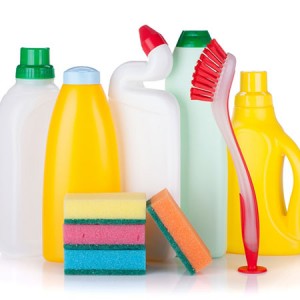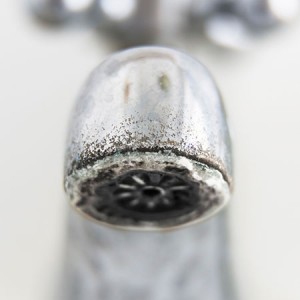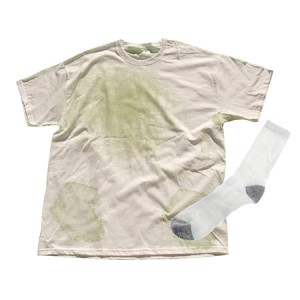How Hard Water Impacts Your Home
Hard water is nearly impossible to avoid. The stats tell us 85 percent of homes in the US have been diagnosed with hard water. And when you start looking around your home, the signs are hard to miss.
High mineral counts are to blame. When your water travels to your civic treatment plant or local well, it picks up calcium and magnesium from soil and rocks. And when the water finally reaches your home and evaporates, it leaves behind mineral deposits known as scale.
Scale can clog plumbing and appliances. So how do we remove it? We’ll go into that later. First, let’s examine where hard water impacts your home and the problems it causes.

Spotting Evidence of Hard Water
The first place you can find evidence of hard water is looking at your faucets. If there’s white, rusty scale buildup around the mouth of the faucet, you have hard water. You can also find this scale on shower heads, along shower walls, toilets and in other water-dependent appliances.
Speaking of water-using appliances, if your dishwasher is no longer cleaning dishes as well as it used to, hard water might be the culprit. Soap doesn’t lather as well with hard water, diminishing the soap’s effectiveness.
Pulling out shabby clothing from your washing machine is another sign of hard water. Towels that feel scratchy and hard is another sign your washing machine is using hard water.
The Cost of Hard Water
When hard water scale buildup forms in your pipes, it slows the efficiency of your water-using appliances. More energy is required for your water heater to function, and the flow of water to your dishwasher and washing machine slows down. These deficiencies can lead to higher utility costs.
Here are some numbers to back it up:
- 29% more energy is used to heat your water during the life of your water heater if you have hard water.
- Over 10 years, it’s estimated your water bill will be $1,500 more if you have hard water.
- The lifespan of home appliances decrease by 30-50%.
- Annual costs for laundry detergent, bath and kitchen soaps and lotions jumps to $1,039 more without a water softener.
- You save 75-80% on these costs with a water softener.
Impact on Hygiene
Hard water can have an impact on your skin and well-being if it’s not treated correctly. Hard water leads to drier skin which leaves you more susceptible to razor burn when you shave.
Hard water also impacts your hair by decreasing its volume, leaving it more limp than usual. If you color your hair, you’ll notice it fades at a faster rate than if you use soft water.
Managing the symptoms in the meantime
To help solve the problems you’re experiencing before deciding on a more permanent solution, there are ways to outsmart hard water. While you can’t fix everything, like protecting the inside of your pipes, these helpful tips will provide some temporary cosmetic relief:

- Stains, spots and scale buildup
- Vinegar (white or apple cider)
- Vinegar’s acidity can cut through the minerals left behind by hard water. Create your own cleaner by mixing a 50–50 solution of distilled water and vinegar to spot-treat scale (for example, on shower doors, faucets). Combine vinegar with baking soda for a more powerful scrub (for example, in bathtubs, sinks).
- Lemon juice
- Like vinegar, the acidity in lemon juice is able to cut through the hard water minerals deposited on water fixtures.
- Commercial products
- Chemical cleaners can help eliminate scale buildup and rust stains left behind by hard water.
- Vinegar (white or apple cider)

- Dull hair
- Vinegar (preferably apple cider)
- Apple cider vinegar (ACV) acts as a hair clarifier, removing mineral and hair products’ buildup and maintaining hair’s color and shine. After you shampoo and rinse, do a final rinse with the ACV.
- Chelating shampoos
- Chelating shampoos are specifically designed to prevent and remove mineral buildup in your hair. A chelating agent (preferably one that contains EDTA) chemically binds to minerals, removing them before you even have a chance to notice their presence. Because a chelating shampoo will strip your hair, it should only be used about once a week and followed up with an intensely moisturizing conditioner.
- Vinegar (preferably apple cider)

- Gray, dingy clothing
- Special additives are available that you can add to your laundry. These additives bind to the hardness minerals and soften the water during the wash cycle. However, those additives are drained away with the wash water, leaving your clothes to be rinsed in hard water and undoing some of the additives’ benefits.
Find a permanent fix for your home
From the increased costs associated with hard water to the supplemental costs required to deal with it, the financial impact accumulates quickly. Trying to keep up with and manage the signs of hard water soon becomes cumbersome and tiring, leaving you exasperated. Instead of fighting the problem alone, a water softener can do the heavy lifting for you. The softener eliminates your hard water problem and distributes soft water throughout the home. All you have to do is monitor the salt levels and conduct some basic maintenance checks.
If you’ve noticed any of the hard water signs in your home, the best way to know for sure if you’ve got it is through a hard water test. It’s quick and easy and it tells you how hard your water is. Once that step is complete, you’ll be able to nimbly maneuver some of the other determining factors in choosing a system. Knowing your estimated water use (for example, how many loads of laundry are done in a week, the number of times you run your dishwasher in a week) and answering basic household questions (for example, how many bathrooms are in the home) will help you focus on the best solutions for your home.

